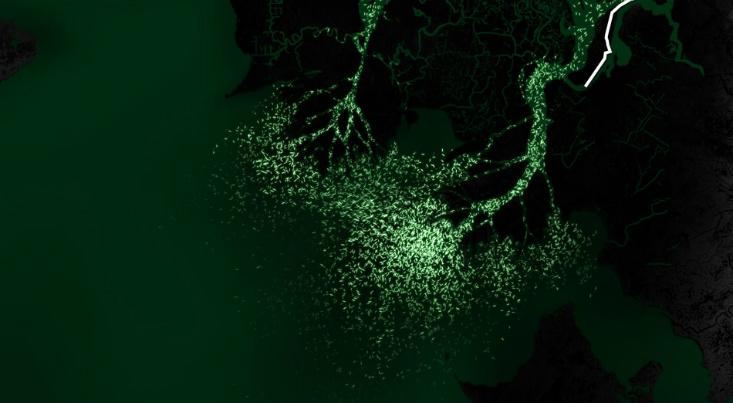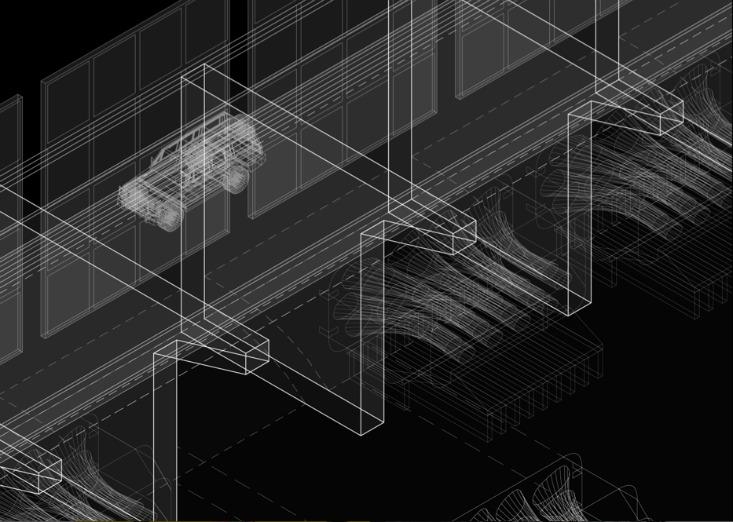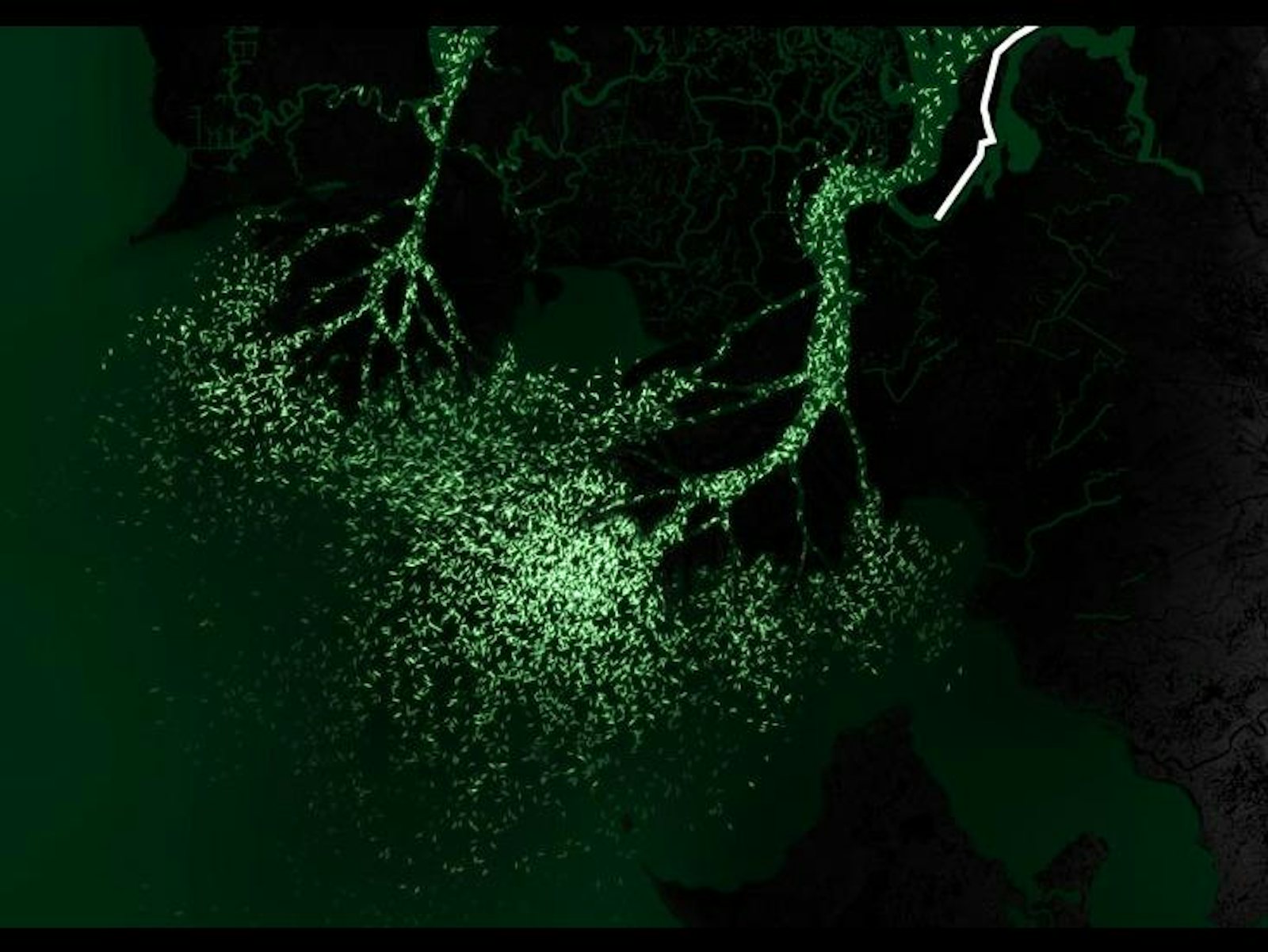
Some people gaze at the Mississippi River and see the majesty of nature: a mighty waterway that carved a path through our continent, draining the vast plains between the Rockies and the Appalachians before pouring out into the Gulf of Mexico. But not Bradley Cantrell. The landscape architect, who has spent much of the last decade studying the river watershed, sees the Mississippi as a prime example of our “purely synthetic world.”
Cantrell, now an associate professor at Harvard’s Graduate School of Design, became fascinated with the river while teaching at Louisiana State University’s school of landscape architecture. He’s hardly the first to note that humans have reshaped the Mississippi with disastrous ecological consequences. The Army Corps of Engineers famously spent the last century squeezing the river between high levees to protect cities from flooding and preserve a deep navigation channel, thus ending the river’s periodic floods that spread rich mud across the delta. The result: the rapid disappearance of Louisiana’s coastal wetlands, which are disappearing a rate of one football field each hour as they sink into the sea.
The solution, as Cantrell sees it, isn’t for a return to the old ways of nature. Instead, he wants humans to become more thoughtful about what he calls the “choreography of sediment.” In his work, he dreams up technological systems that can be inserted into the ecosystem and become an elegant part of ongoing natural processes. By integrating his inventions into the landscape, he imagines creating a “cyborg coast.”
In a proposal that he calls PodMod, Cantrell focuses on the Atchafalaya River, an offshoot of the Mississippi that offers a rare spot of hope along Louisiana’s degraded Gulf coast. The Atchafalaya is building some land in its delta, but Cantrell thinks it can be encouraged to do much more. He studied data regarding water velocity along the river’s length and zoomed in on its sinuous curves, where the current slows and deposits sediment that is desperately needed farther south. Cantrell asked himself: “What could be put in place to allow that sediment to make the journey all the way to the Gulf of Mexico?”
Cantrell and his students designed a tool that could be inserted into the river’s system of gates that control the water leaving the Mississippi for the Atchafalaya. The tool would hold open mesh tubes that would collect waterborne sediment, and then seal each tube to create a dirt-filled pod. An inflated portion of the outer casing would allow the buoyant pod to bob downriver. Once the pod passed the river’s mouth, the gulf’s saltwater would trigger a process of electrochemical corrosion in a small metal clamp on its balloon, which would deflate. The pod would sink, adding its load of mud to the marshes. Cantrell even imagines inserting an RFID tag into each pod, so riparian choreographers could keep track of each dancing bit of sediment.
The PodMod scheme offers “infrastructure that’s not so monolithic,” Cantrell says, but rather a “tunable infrastructure.” Managers could release volleys of pods when the season or time is right, coordinating with fish spawning, for example, or the movement of ships on the river.

Cantrell doesn’t exactly have the ear of the Army Corps of Engineers, and his proposals are presently just thought experiments. Louisiana’s coastal managers have their own plans for correcting the mistakes of the last century. Their $50 billion Coastal Master Plan includes massive diversion projects to funnel sediment-laden water into the wetlands. (The plan was approved by the Louisiana legislature, and construction on one $250 million diversion could begin in 2015.)
However, such mega-projects arise from the earlier mentality of overwhelming control, Cantrell says, which created the problem in the first place. Instead of building an enormous diversion with one sluice gate, he imagines a series of smaller gates that can be individually opened and closed to produce precise effects. “If you use sensors to understand how land is forming downstream, you can then open or close the gates to either deposit land or to cut land away,” he explains. He calls this setup a “land-printer.”
In Cantrell’s dreamed future, humans will still be in charge of the synthetic entity we call the Mississippi River. But we will manage it in a less human-centric way, prioritizing not only our needs, but also the requirements of the myriad life forms that call the delta home. He’s trying to nurture a new kind of environmental consciousness that goes beyond remediation and conservation. Humans aren’t going to stop being in charge of nature any time soon, he says, but we can “construct the world in ways that enable a richer ecosystem.”
Eliza Strickland is an associate editor for the science and technology magazine IEEE Spectrum


























